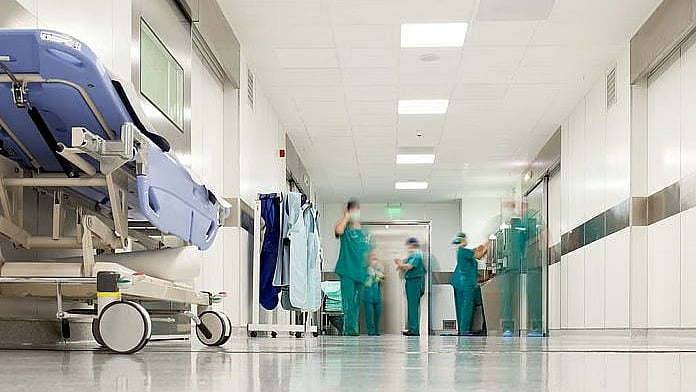OPD Footfalls In Mumbai Hospitals Drop By Up To 40% Amid Heavy Rainfall
Hospital officials said the steepest fall was recorded on Tuesday, when heavy showers, waterlogging, and transport breakdowns made it difficult for patients to reach hospitals. Doctors noted that such seasonal dips are common during the monsoon, as many people defer non-urgent consultations due to flooding, traffic snarls, and the risk of waterborne infections.

Representation Image |
Mumbai: Continuous heavy rainfall has not only disrupted transport and daily life in the city but also impacted healthcare services. Civic and state-run hospitals reported a 35–40% decline in outpatient department (OPD) visits, as patients avoided stepping out in the downpour.
Hospital officials said the steepest fall was recorded on Tuesday, when heavy showers, waterlogging, and transport breakdowns made it difficult for patients to reach hospitals. Doctors noted that such seasonal dips are common during the monsoon, as many people defer non-urgent consultations due to flooding, traffic snarls, and the risk of waterborne infections.
At J. J. Hospital in Byculla, which usually records 4,000–5,000 OPD visits daily, numbers dropped to around 2,500–3,000 over the past three to four days. Similar trends were observed in other civic and state-run hospitals.
“This is a recurring pattern every year during heavy rains. On some days, nearly half the patients who normally come for check-ups, treatments, or follow-ups do not turn up,” said a senior doctor from a state-run hospital.
While emergency and critical care services remain unaffected, experts warned that postponing routine visits could worsen chronic illnesses for some patients. They also advised citizens to avoid wading through stagnant water to prevent infections like leptospirosis, gastroenteritis, and skin diseases, which typically spike during the monsoon.
The Brihanmumbai Municipal Corporation (BMC) has urged citizens who have waded through stagnant or rainwater to seek medical advice and take preventive medication for leptospirosis within 24 to 72 hours, as exposure to contaminated water and mud—especially through cuts or wounds—can cause infection that may turn fatal if untreated. Commissioner Bhushan Gagrani has directed the Public Health Department to intensify awareness and ensure timely action against monsoon-related diseases like leptospirosis, dengue, and malaria, with free consultation and medicines available at BMC health centers and hospitals.
According to the BMC Health Department, in the last 15 days the city recorded 72 new cases of leptospirosis and 328 cases of gastroenteritis. “Citizens are advised to ensure that no stagnant water accumulates in or around homes and residential complexes, as it provides a breeding ground for mosquitoes. Any such water should be drained immediately, and special care should be taken during this season,” said a civic health official.
Although the BMC has not updated recent data on skin-related ailments, health experts cautioned that fungal and bacterial infections also tend to rise sharply during prolonged rainfall.
RECENT STORIES
-
-
-
-
-